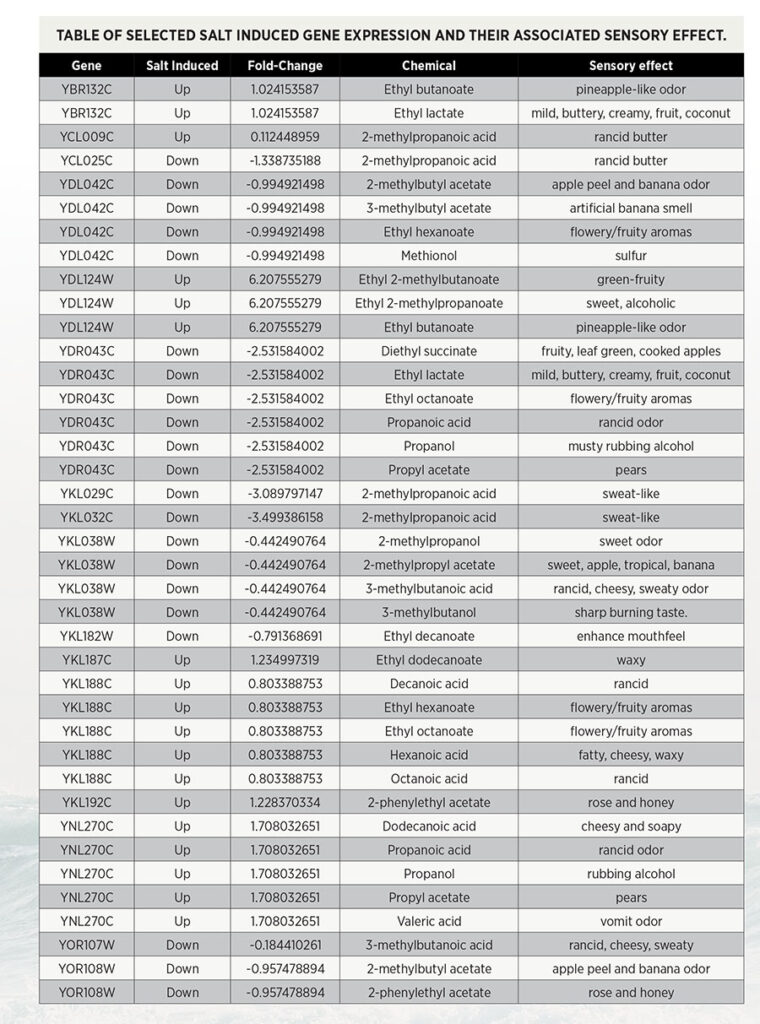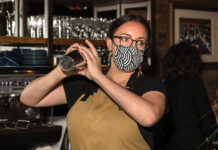In 2018, Cape Town, South Africa, narrowly escaped “Day Zero,” the point at which the city would run out of fresh water. In 2020, Sydney, Australia, implemented water restrictions. In 2023, about 51% of the continental United States is “abnormally dry” or worse, according to the U.S. National Weather Service. The chief sustainability officer at PepsiCo said, “Half of the world’s population will face water scarcity as soon as 2025.”
The lack of drinkable fresh water poses a substantial risk to populations around the globe, yet about 70 percent of the globe is covered in ocean water. The problem, of course, is that this water is filled with dehydrating salt. This is not such a problem for distillers. Distillation can be used to separate the fresh water from the salty components of the ocean water.
Nearly every continent has been under drought in the past few years, and sustainable water usage is a growing theme, especially in San Diego, California, where water rations were mandated in June 2022. Brad Abramson, PhD (chief science officer) founded New Tides Distillery with James Burdick (chief executive officer) on the idea that we should be using the most abundant resource on the planet, the oceans, to offset the fresh water used in spirit distillation.
New Tides Distillery is offsetting the fresh water required for fermentation by replacing it with seawater. By optimizing the yeast’s ability to handle the high-salt conditions of seawater, New Tides Distillery can reduce the fresh water used in the mash by 100%, thereby preserving fresh water resources in San Diego for human consumption.
New Tides Distillery has successfully demonstrated fermentation and distillation of mashes where 100% of the fresh water was substituted with ocean water obtained from Mission Bay in San Diego. As proof of concept, we produced a simple sugar mash and an all-grain corn whiskey mash. Abramson, having limited brewing and distilling experience, reached out to the San Diego Distillers Guild, and Sean Hallman from Shadow Ridge Spirits offered support. Hallman offered to perform the initial ocean water distillation if Abramson provided the mash.
The reciprocated excitement led to a funded Distilling Research Grant from the American Distilling Institute that helped launch New Tides Distillery. This research grant allowed Abramson and New Tides Distillery to start looking into how ocean water used in the mash might have an effect on the yeast and spirit flavor. What follows is a report on the outcomes of this work in the hopes of inspiring more coastal distillers to explore alternatives to fresh water.
Technical Background
There are two primary ingredients of concern: ocean water and yeast. Ocean water’s specific gravity used here was 1.023, equating to a ~3% salt solution. This is a heavily salted water compared to the 0.9% salt contained in human blood and the ~0.01% salt in the tap water of San Diego, determined from the 2021 SD Annual Water Quality Report. The pH of the ocean water was 7.43, which falls within the standard range of municipal tap water. However, it is interesting to note that the ocean is buffered with a carbonate/hydrogen carbonate system which stabilizes its pH and may be beneficial in stabilizing the pH of the mash. There may be other chemicals in the ocean water that need to be tested for, but by using ocean water instead of fresh water, there is a substantial increase in the amount of salt in the mash.
Saccharomyces cerevisiae, or yeast, are single-celled fungi adapted to freshwater environments that can perform ethanolic fermentation. Since yeast have evolved in mostly freshwater environments, the genome would be adapted to this environment and may lack the genes required to grow in heavily salted ocean water. New Tides carefully selected and slowly adapted proprietary yeast strains growing under increasing salt concentrations to condition yeast populations to survive in ocean water.
The yeast genome encodes all the genes that are required to convert sugars to ethanol, genes required for environmental adaptation, and genes that can control volatile flavor compound production. Previously, researchers have performed genetic analysis to determine which genes are associated with pleasant and disagreeable flavors. It has been shown that the gene NRG1, or YDR043C, is associated with unpleasant propanol production that has a musty odor. Conversely, the gene YDL124W is associated with several pleasant flavor compounds.
Preliminary Findings
The specific growth environment and chemicals in the mash can alter global gene expression in the yeast cell alongside the genes that are associated with pleasant or off-flavors. Saccharomyces cerevisiae has evolved in freshwater environments, and the 3.5% salt in ocean water alters the abundance of many gene transcripts. We compared the transcript abundance of 6,459 expressed genes of untreated control samples with salt stress, osmotic stress, and ethanol stressed samples and visualized the similarity of independent samples.
To understand the specific genes altered in the salt-stressed cells, we performed differential gene expression analysis and found 1,462 and 1,525 significantly upregulated or downregulated genes We next compared some of the genes known to be associated with specific flavor production (Figure 1). Interestingly, the YDL124W gene is upregulated substantially in the heavily salted conditions and may lead to increased fruity and sweet flavors. These results suggest that using ocean water not only helps reduce the fresh water used in the distillation process but might actually help produce beneficial flavors in the final distillate.
New Tides Distillery is currently working to analyze the distillate to understand the effect of using sea water as a 100% replacement to fresh water in the fermentation mash. We would like to understand how many flavor compounds are altered and if any novel compounds come through in the final spirit as well as whether the natural compounds in the ocean persist in the final spirit. This research is ongoing with the help of Henric Molin of Spirit of Hven Distillery. Our hope is to have the first 100% seawater distilled spirit on shelves soon.









